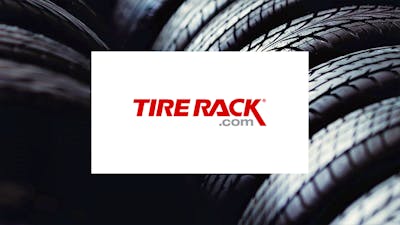What You Need To Know About Winter Tires for 2024
America is in the midst of a very wet season. Extra precipitation this winter could mean a lot of snow on a lot of commutes. If you are thinking about changing your tires ahead of the freeze, we can help. Here's what you need to know about winter tires, along with some information on another option.
Get the Best Deals on Tires
Do Winter Tires Work?
Before we go too far, let’s get one thing out of the way. If you have never tried winter tires, be prepared to be wowed. Winter tires work very, very well. They can transform almost any vehicle into a “good car in the snow.” Don't take our word for it. Ask your friends, neighbors, and the folks you communicate with on social media for their opinions. Be prepared for a lot of brand loyalty. There is team Blizzak, team X-Ice, and team Nokian.
Every owner will tell you the same thing; “These tires are amazing!” Having tested many different winter tires, we will say that for mainstream commuting, every winter tire will make a drastic and positive impact on your snow day commutes.
I have All-Wheel Drive. Do I Even Need Winter Tires?
All-wheel drive is an important winter driving feature we would recommend to anyone who needs to drive in harsh winter conditions. All-wheel drive will make it possible for you to move the car forward in even extreme conditions on all-season tires. However, it won’t help you stop - at all. And despite the many claims about “torque vectoring” and other such who-ha, AWD won’t help you much when you turn in normal driving. Since stopping and turning are important parts of driving, AWD can’t do it all.
Winter tires help you in every aspect of driving over snow and ice. Perhaps the most impressive benefit is how well they can stop a car in winter conditions compared to all-season tire designs. Winter tires don't just help prevent you from getting stuck. Winter tires also help you maintain stable contact with the road when traveling on the highway or on a secondary road at normal speeds.
What Are Winter Tires?
Winter tires, formerly called “snow tires” by many older Americans, are tires that are specifically designed for winter driving. Winter tires don’t have just one or even two changes that make them better in snow and on ice; rather, the design is focused on cold, slippery travel from start to finish.
Compound
The first big difference between winter tires and all-season or summer-only tires is the rubber compound used in the tread. Tire makers formulate a compound that is pliant in very cold temperatures, and they also add ingredients such as silica to make them more grippy on ice.
This is a difference you can actually feel. If you run your hand along the tread of a winter tire, it feels soft and almost sticky at colder temperatures. By contrast, the tread of an all-season tire feels firm and more plastic-like. Summer-only tires are designed for operation above freezing, so they are not at all safe in winter. The compound gets hard and slippery.
Sipes and Snow Retention
The next big change you will notice when examining a winter tire is that the tread blocks seem to have many small zig-zag cuts in them. These are called sipes. They do a couple of things for you when the tire is driven over snow. First, they increase the surface area of the tire by opening up and creating biting edges. Second, they allow snow to enter and then stay embedded for a rotation of the tire. The reason for this is that snow on snow is grippier than rubber on snow. If you look closely at a snow tire after driving on snow, you will see that it is entirely covered in snow. This is a good thing.
Tread Blocks and Tread Depth
Since one objective of a snow tire is to increase its surface area, tire designers make the tread differently. They make it deeper so that it can press into the snow and have more snow in contact with more rubber. You may notice the contact patch of the tread is a bit narrower when compared to an all-season or summer-only tire of the same size specification. That is also to allow for the tire to penetrate deeper as it rolls over a snowy surface.
Sacrifices of Winter Tires
Since winter tires have a very narrow focus and a very targeted function, some aspects of the tire’s design come with downsides. Noise is the first. Winter tires hum on the highway and have a more noticeable sound in all driving conditions. If you have a long commute, this is going to drive you a bit bonkers after a while.
Winter tires are also not as “precise” with regard to steering as all-season or summer-only tires. The vehicle will handle just fine in normal driving, but you will notice the difference.
Finally, many drivers report that their fuel efficiency drops a bit when they mount their winter tires. Remember, winter tires are focused like a laser on being great at one thing. They are not great at everything. No tire is great at everything, yet.
The Twice Annual Swapping Hassle
Perhaps the biggest negative with owning winter tires is that you need to take them off in the spring. The soft compound is not formulated for use in warm temperatures. In fact, winter tires are not as good at stopping or as good at handling wet, warm roads as are all-season tires or summer-only tires. The soft compound will wear rapidly if used in the summer season.
What this means for you as an owner of the tires is that you have to have two sets of tires. You can either have the rubber stripped off the rims twice per year, which is costly and not great for the tire beads, or you can own two complete sets of wheels (Rims, tires, and tire pressure sensors). Both options are a hassle since you have to have two annual tire visits, which means loading and unloading four dirty tires twice per year and paying for the service to have them swapped. Then there is the storage challenge. Your other set of tires does rest for half the year, so you will not need to buy tires as often, but overall, you still spend about the same amount on the tires during the life of the vehicle.
A New Alternative to Winter Tires - Four Season Tires
Over the past five years or so, a new option has emerged. Tire makers have made advances in tread and compound designs and now offer what we call “four-season tires.” These are technically “all” season tires, but that name was already taken. These new tires earn the three-peak-mountain snowflake symbol (3PMSF), denoting that they have been tested and approved for severe snow duty.
These tires come in the form of touring tires, meaning they are intended for on-pavement use in normal everyday driving. They are also available in trail and all-terrain versions for those who head off the beaten path. We have tested three such tires. The first is the Michelin CrossClimate2. This touring tire is all the rage now on all the Facebook and online clubs for crossovers and SUVs. Owners love them. The second group is the Falken WildPeak A/T Trail and Falken A/T3W all-terrain tires. Both work very well, even in deep snow.
These tires are not the true equal of a dedicated winter tire. However, they are outstanding in snow of almost any reasonable depth. On ice, they are a bit better than all-season tires but not as good as true winter tires. The huge upside is that you can leave them on all year round. You no longer need two sets of tires.
Having tested these for three winters, we would say that these are the best option for most drivers who need to drive in winter but who will stay home if a state of emergency is declared. If you are a first responder or essential worker who needs to drive straight into the teeth of an ice storm, you already know you must have the best winter tire available. In our testing, the all-weather version of these tires had no real downsides compared to other tires that were simply all-season. Noise is not much different; our fuel economy didn’t go down, and the tires wore out normally, not faster than other tires in their category.
Where Can I Buy Winter Tires?
You can buy winter tires anywhere tires are sold. Online retailers such as Discount Tire, Simple Tire, and Tire Rack earn very high praise from customers. These retailers offer not just tires but also help with selection.
Local tire retailers are also a great option. Dealers can and do provide many customers with winter tires but have a reputation for being pricey. Big-box stores like Costco and Walmart are also popular tire providers.
Do I Need to Buy a Different Size When I Buy Winter Tires?
No, you can simply purchase the same size your vehicle has on it now. If you own a top trim and the lower trims of your model have a smaller diameter wheel with taller-profile sidewalls, you may be able to use that size if you buy a complete set of wheels and tire sensors along with your winter tires. Your retailer can help you with that. The benefit of doing so is that the taller sidewall offers more flexibility over potholes and may offer a lower risk of winter tire damage. Never buy “larger” or “bigger” tires for winter use. It is not beneficial in any way.
How Much Do Winter Tires Cost?
Winter tires tend to be on the lower end of the price spectrum and often cost about 20% less than an all-season tire of equivalent size. Winter tires don't have the same long tread life that all-season tires often have. Expect to get three to five seasons of life from a set of winter tires, depending on your miles driven.
About Studs
Some winter tires can accept metal studs. These are screwed into the tread blocks and are intended to help you deal with severe icing conditions. Studded snow tires are generally not used for long-distance and are not ideal for highway use. Many municipalities restrict their use to certain winter months. If you need a vehicle that can handle extreme ice, adding studded winter tires is the way to go. Short of that, don’t do it. The noise they add is extreme, and studded tires are not as safe on dry or wet pavement as non-studded tires are.
Fall is a great time to shop for winter tires. Manufacturers plan their inventory so that it is available at the beginning of winter. Wait too long, and you may find the winter tire of your choice difficult to find.
Read more on the Best Tires in the industry here.
Read more on the Best Tire Brands in the industry here.













